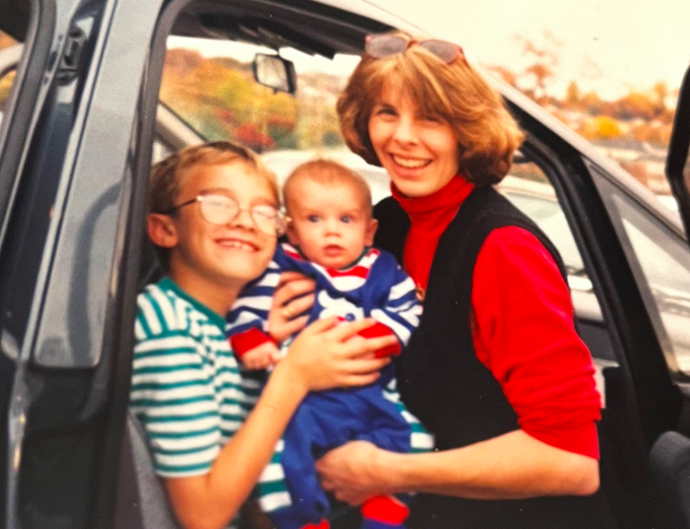This article appeared on ABC News. Read more here.
Dr. Sean Cullen, of New York, was 9-years-old when his 9-month-old brother Kevin died due to respiratory syncytial virus, or RSV, a common respiratory virus.
Today, nearly 30 years later, Cullen works as both a laboratory researcher and neonatologist at New York-Presbyterian Alexandra Cohen Hospital for Women and Newborns at Weill Cornell, the same neo-natal intensive care unit, NICU, where Kevin was treated.
Cullen, one of six siblings, said his youngest sibling Kevin was born with a congenital heart defect that required emergency surgery shortly after he was born.
Kevin went on to become a healthy infant, according to Cullen, until one day he became “very sick, very quickly” with RSV, a respiratory virus that circulates in the winter months and is the most dangerous for infants under six months of age and children who were born prematurely or with weakened immune systems and/or underlying heart, lung or neuromuscular problems, according to the U.S. Centers for Disease Control and Prevention.
“Because of how quickly everything had happened, [my siblings and I] had all gone to sleep the night before not really knowing that anything major, from a medical perspective, was going on with my brother,” Cullen told “Good Morning America.” “One by one, we all woke up in the morning, just thinking it was a regular, you know, Thursday morning, going to school, and just coming down and seeing my kitchen filled with basically all the members of my extended family.”
Cullen said he still remembers to this day the “profound shock” he felt when his parents told him his brother had died, a sense of grief that he said his family still feels to this day.
In his role now as both a neonatologist and researcher, Cullen said he wants parents and caregivers to know the advancements that have been made over the last three decades when it comes to treating and preventing RSV, a virus that is so common that nearly all children are infected with it before their second birthday, according to the CDC.
“For me personally and for my family, it’s still a devastation that I wouldn’t ever want another family to experience,” Cullen said of losing his brother to RSV, adding that people in today’s world are, “incredibly blessed to live in the time of the scientific advancements that we do.”
Although most cases of RSV infection are mild, the virus can be dangerous among infants and young children as well as senior citizens. RSV can also spread rapidly, with people becoming infected by simply coming into contact with the droplets of an infected person or by touching a surface that has the virus on it and then touching their faces before washing their hands.

